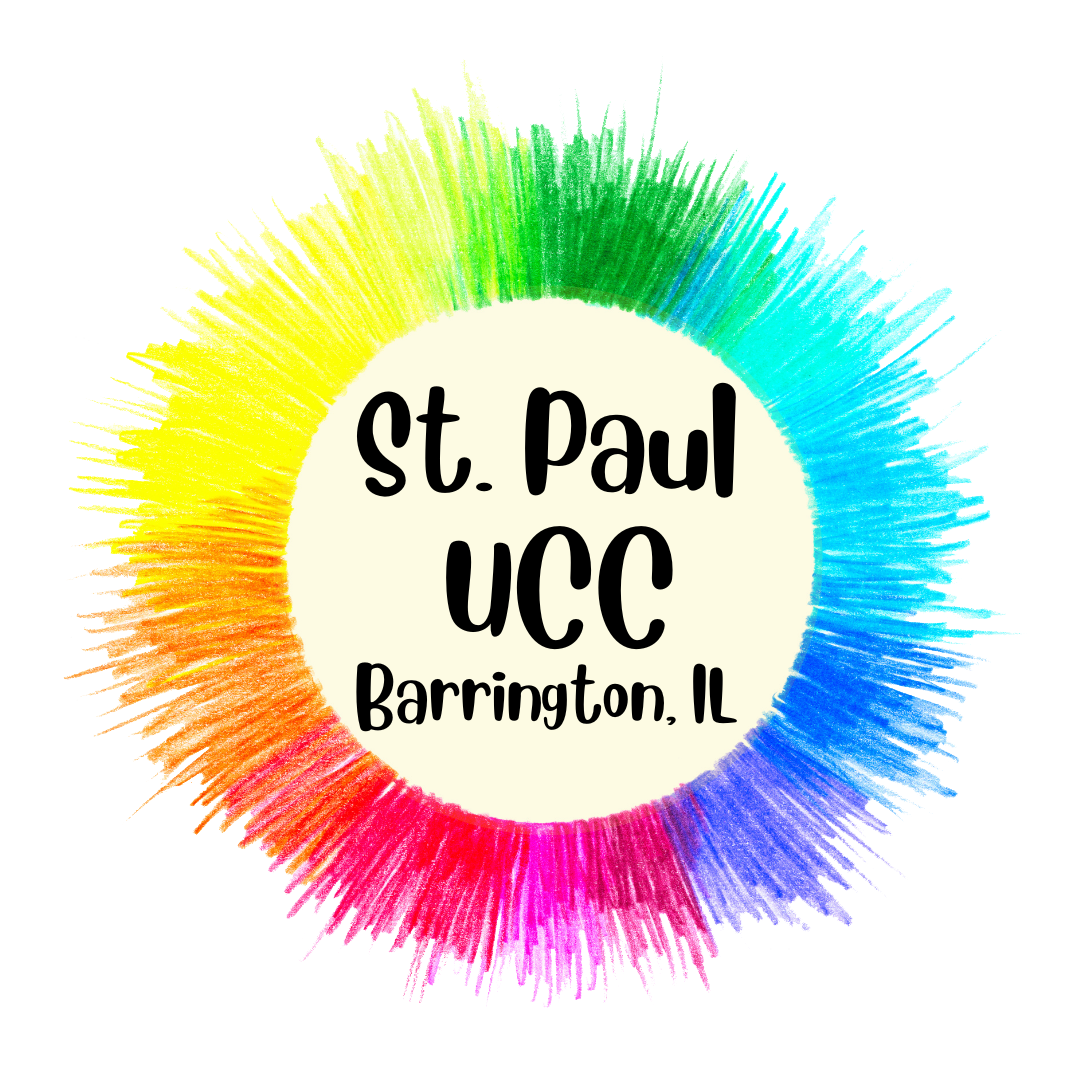HOSPITALITY FOR ALL
A number of us have participated in the St. Paul book club over the last three years, where we’ve read books that address injustice in a variety of contexts, including racism, poverty, education, environment, and the criminal justice system, to name a few. Some in the group felt that simply reading about injustices without doing anything about it was insufficient, and formed the St. Paul Equity and Inclusion team.
Our goal is to work to change laws, policy, and practices that can help to bring about a more just world. We look for opportunities to do justice work in our wider communities, and we look for opportunities in our own St. Paul community, too. Some of our conversations about our church community have focused on hospitality – how we welcome everyone to our St. Paul church life.
When our congregation came together in 2011 to create a new mission statement, we agreed to include the phrase “to accept and welcome all” in recognition of the Christian practice to offer hospitality and to create spaces where we are accepted just as we are – beloved children of God.
The St. Paul Equity and Inclusion team has been asking how we’re doing with living into that statement. What do we mean when we say we welcome all? What does it mean to offer hospitality to all who walk through the doors of our church?
Jesus said, “When you give a luncheon or a dinner, do not invite your friends or your brothers or your relatives or rich neighbors, in case they may invite you in return, and you would be repaid. But when you give a banquet, invite the poor, the crippled, the lame, and the blind” (Luke 14:12–13). Jesus continues, telling a story of someone who had a great dinner and his invited guests made excuses not to come, so the master tells his slaves to invite the poor, crippled, and blind, and when there was still room for more guests, they invited casual passers-by. In short, Jesus instructed us to welcome even people who cannot return the invitation. We are invited to widen the tent, with no hope of a return benefit.
Imagine the apostle Paul spreading the Christian message to communities of Greeks who likely dressed differently, spoke different languages, held different religious practices, and ate differently than Paul without the open hospitality of those early church communities. How might the Good News have spread without the Jewish communities altering their own practices (like dietary laws and circumcision) to include the stranger, the other?
How is our St. Paul church community doing truly in welcoming all? What practices might we need to change to make sure we’re offering hospitality as Jesus instructed? As Pastor Jana would say "convicting ideas for our congregation to think about."
Respecting YOU
Let’s take a short memory trip back to an elementary school grammar lesson. I think we all remember that pronouns are words used to substitute for someone’s name in conversation or writing. Examples are she/her/hers, they/them/theirs, etc. “See John over there? Please take him this book.” Simple, right? Well, not always! As society becomes open to different forms of gender expression, you can’t always take for granted someone’s preferred pronouns.
You may have been in a meeting recently where someone introduced themselves like this: “Hi, my name is Samantha Smith, and my pronouns are she/hers”. Or perhaps you’ve seen it in someone’s email signature line, on a nametag or in their Zoom call identification. This person has chosen to self-identify their preferences instead of having others assume which pronouns they use based on their name or appearance. Including pronouns is a first step toward respecting people’s identity and it creates a more welcoming space for people of all genders. It shows that we are open to non-traditional forms of identity and gender expression in support of the LGBTQIA communities.
It’s OK if you don’t feel like sharing your personal pronouns – not everyone feels that need or is comfortable doing so. It may feel awkward, especially the first few times you do it, or when you’re in a situation where you are already familiar with everyone there. But consider someone who may be questioning their gender identity, and how you taking the lead may help them feel more included in the group. If someone you don’t know has not shared their pronouns, don’t assume you know what they are, and refer to them by name rather than a pronoun.
So how should we react when we accidentally refer to someone by the wrong pronoun? Simply apologize and move on (example, you referred to Alex as “he” when Alex uses “they/them/their” pronouns): “Oh, my mistake, this is Alex, they are one of the committee members who will be presenting tonight.” We all make mistakes, just be mindful and commit to using the correct personal pronouns moving forward.
This effort to be more welcoming and open is not simple or straightforward, and will take practice before it starts to feel ‘natural’. But if as a church we want to live up to the ideal that “love wins” and that we are an open and affirming church, then we should consider using pronoun identification in our everyday interactions. It’s just another step along our journey together that Jesus invites us to walk every day.
